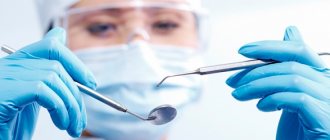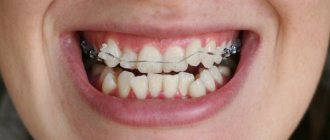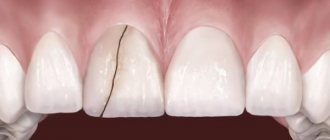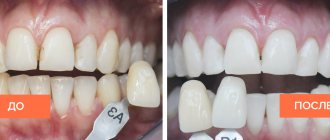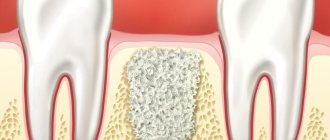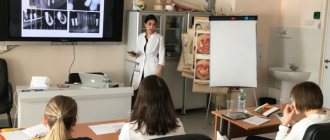Do you need to eat?
Before visiting the dentist, it is advisable to eat a hearty, high-calorie meal.
Firstly, it is often not recommended to eat for 1-2 hours after treatment, and the appetite of someone who has happily survived all the worries of a dental appointment is on the contrary. Secondly, if you go for dental treatment on an empty stomach, the likelihood of fainting increases. Low blood sugar combined with fear or fatigue is the leading cause of fainting in the dental chair. If you have fainted before, you should prepare especially carefully. It is recommended to eat meat, dairy, vegetable foods, slowly digestible porridge (buckwheat, oatmeal) and pasta at home for breakfast (or lunch - depending on the time of the appointment). And a few minutes before the meeting, you can satiate yourself with quickly digestible sweets. However, for people with an increased gag reflex, the recommendation is the opposite - do not eat at least 3 hours before your appointment. This is especially true for situations related to taking impressions during prosthetics and treatment (or removal) of distant teeth. If this is not your first time going to the doctor, he knows your individual characteristics, and he may recommend some antiemetic drugs before the procedure begins. If this is your first meeting with this dentist, be sure to warn him.
How to prepare for a dentist appointment
In order for your treatment, implantation, tooth extraction, and professional hygiene to be as successful as possible, you need to know and follow simple but very important rules.
Eat before your appointment
First of all, be sure to eat ! Depending on the time of day, it can be breakfast, lunch or dinner, but it is hearty and complete. Even if you are not usually used to, for example, having breakfast, make an exception before visiting the dentist.
Why is it important ? After eating, the human gastrointestinal tract produces a minimum of saliva, which is very helpful during treatment or surgery. In addition, a well-fed patient feels much calmer and less anxious.
Most patients are either afraid of the dentist or very nervous during the appointment. At this moment, the body produces stress , which in turn requires increased metabolism, during which, among other things, the composition of the blood changes. “ fed ” body has a kind of reserve that begins to be used up, while a “ hungry ” one experiences a lack of vital substances. The consequence of such a deficiency can be fainting , collapse and other dangerous conditions .
Cure from a cold
Second important condition. Any viral disease, cold , fever , cough , runny nose - all this is incompatible with treatment by a dentist. Taking medications can eliminate symptoms, but not the disease. These conditions always reduce immunity, which means that the body will have less strength to recover after dental intervention. Viruses and microorganisms, in turn, begin to multiply intensively when other diseases, including dental ones, occur. Among other things, a sick patient is likely to infect the doctor, medical staff and other patients.
If you are not sick, but feel unwell , chills , or other unusual symptoms , it is better to postpone your visit to the doctor to another day. It is possible that you are already getting sick, although your health is not yet so critical. Doctors call this condition prodrome ; it precedes the period of vivid manifestations of the disease. Theoretically, you can remove a tooth, treat caries and even place an implant, and in the evening or the next day the disease ( flu , ARVI , cold ) will manifest itself in full force. In this situation, the underlying disease will be more severe, and the prognosis of dental treatment will be worse, and in the case of implantation, it may result in implant rejection.
Get rid of herpes
Herpes virus - often, apart from a couple of blisters on the lip, it may have no other manifestations, but this is only an external impression. Herpes is highly contagious and spreads very quickly. After dental treatment, the manifestations of herpes can be much more severe and serious than before the intervention.
Control blood pressure
High blood pressure necessarily requires control: almost all anesthetics used in dentistry increase blood pressure even more; treatment, surgery, and tooth extraction cannot be performed. If you suffer from hypertension, then such treatment is planned in advance, always in the morning , when blood pressure is lower, and antihypertensive drugs must be used first.
Notify your doctor about any drug allergies
Allergies are one of the most common and dangerous conditions. If you have ever had an allergic reaction after treatment, medication, or anesthesia, BE SURE TO WRITE DOWN THE NAME of the drug or substance that caused the reaction. Always tell your doctor about this before treatment, indicate all the facts and manifestations.
Do not treat teeth after vaccinations (do not get vaccinations after dental treatment)
Vaccinations are also incompatible with dental treatment. Moreover, both before and after. If you have been vaccinated, you should not plan dental surgery in the next 3-4 weeks. Otherwise, you expose your body to a double blow. Treatment before vaccination is possible, but it is also better to separate these two events by one and a half to two months.
If we are talking about implantation or sinus lifting, it is ideal to completely refuse any vaccinations during the healing of the implant or bone ( 3-6 months ). Any intervention may reduce the chances of successful implantation of a foreign substance, since the immune system reacts actively to both implantation and vaccination.
You can treat your teeth during pregnancy, but be careful
Pregnancy – treatment and removal of teeth during pregnancy is possible, and sometimes even necessary. The main thing in this situation is to take into account its duration . Modern dentistry has medications that are approved during pregnancy, however, in each specific situation, the doctor individually selects the best options.
Don't drink alcohol
Neither the day before nor 100 grams “for courage” should be taken categorically. We think the reasons for this recommendation are clear.
Be attentive to yourself and frank with your doctor
In any case, when you come to the doctor, tell us about all the features of your body, permanent or temporary symptoms, and ask the doctor any questions that interest you. If you have any doubts , check with your dentist about all the details and discuss everything related to it with your doctor before starting treatment.
Author: chief physician of the clinic Our dentist, orthopedic dentist Sharmay Oleg Nikolaevich
The prices given in the text are indicative and may differ from actual prices. Current prices can be found in the “prices” section.
How to stop being afraid of the dentist
Dentophobia, odontophobia, dentophobia - pathological fear of dentists has many names. And, although there is no Russian word for this phobia, it is among our people that the fear of the dentist has taken the form of an epidemic. Perhaps it’s all due to free Soviet medicine with torture-dental chairs in a row, old drills and shouts of “what are you pretending to do?!” It doesn’t hurt at all!” instead of anesthesia.
Nowadays, such exotic things can only be found in a run-down district hospital, and even there, for an additional fee, the state doctor is ready to make the sufferer happy with an anesthetic injection. What can we say about paid clinics - where for your money they will correct your headrest, play relaxing music and offer more than one type of anesthesia.
However, despite all the delights of turning a disenfranchised patient into a valuable client, we still find a dozen reasons to reschedule a visit to the dentist until Thursday after the rain. And fainting in the chair, convulsively clenched jaws and bitten hands of dental professionals have not yet become the property of history.
What are we afraid of?
It's no secret that dental patients are most often and most afraid of pain. Fear of injections, drills and instruments is already secondary, because the first thing that frightens you is that they can cause pain.
In addition, discomfort is caused by:
- feeling of helplessness;
- fear of the unknown and suspicion that the doctor will do something wrong;
- the awkwardness of having to show someone your flawed mouth;
- Concerns about medical bills.
From anxiety to phobia
It’s one thing when a visit to the dentist is not exciting or simply unsettling, and it’s quite another to have panic. And the consequences of dental phobia are not the most innocent. Due to the fact that a visit to the doctor is postponed until the last minute, instead of caries, it is necessary to treat pulpitis (longer, more unpleasant, more expensive), remove teeth that could previously be cured, and eliminate everything that basic prevention could have prevented.
Doctors are also not happy with panicking patients. And they can be understood. Try using calligraphic handwriting to fill out a form on a rural bus or thread a needle held by an alcoholic with tremors - just as a doctor is uncomfortable working with a patient shaking with fear. And it’s good if the sufferer does not try to grab the hand with the instrument or try the doctor on the tooth.
How to stop being afraid of the dentist?
Are you a blonde, 150 cm tall, but want to terrify tough thugs with just your appearance?
Apply for dentistry...
joke
In the life of any dental phobe, sooner or later there comes a moment when it is no longer possible to endure the pain. And this is where you can
make a discovery - it turns out that dental treatment does not hurt now. At least in good clinics.
For this knowledge, I personally gave up a tooth that could have been cured in time, but three years of my whining “I don’t want to, I won’t” didn’t
They left him a chance.
Memo for a dental phobe
1. Imagine a scary and not scary dentist. What is the difference?
Think about what exactly the dentist scares you about. Try to figure out which fear has a real basis (no, you still have to open your mouth), and which one is generated by wild imagination (well, the doctor won’t remove a healthy tooth!).
2. Read the information about painkillers and sedatives that are used in modern dentistry
The primary source of fear is pain, and you already know what you can do to avoid it. The times when teeth were chipped with novocaine, which was not always effective, have long since sunk into oblivion. After anesthesia with modern means there will be absolutely no pain. Moreover, you can ask to apply an anesthetic spray first and then even an injection into the gum will be painless. In addition, almost everywhere you can be offered a sedative before starting treatment.
A number of clinics also practice dental treatment in half-asleep, when under the influence of sedatives fear goes away and relaxation sets in, but the patient remains conscious. And in some places they even offer treatment under general anesthesia.
3. Choose a good clinic and specialist
Now you need to choose someone who will become your guide to the world of dentistry with a human face. And, believe me, you are not the first or even the tenth problem patient - a good dentist has developed a technique for communicating with the most sensitive clients.
It is advisable to choose a doctor based on recommendations; it also does not hurt to listen to advice on specialized resources, especially reviews from former “problem” patients.
4. Make an appointment for a consultation, warning that you are a complex patient and on the first visit you want to do without medical manipulations
Talk to your doctor and explain the situation to him. There is no need to be shy - it is not your fault that you are afraid. You have already shown courage by taking the first step to overcome fear.
Are you afraid to sit in a chair? Try talking on the couch or table first. Are you afraid of tools? Ask them to be removed from view. And remember, no one will force you to treat you. If panic sets in, take a few deep breaths and remember that nothing bad is happening.
Let the doctor talk in detail about the treatment. Don’t be shy to ask questions - when you know what lies ahead, at least you don’t need to be afraid of uncertainty. At the same time, get advice on what sedative you can take before your next visit.
5. Discuss the cost of treatment before it begins.
They won’t tell you the exact amount in advance, but the range “from” and “to” will be indicated. If you can’t pay for the dentist’s services right away, don’t put off your visit indefinitely. While you are collecting money, the tooth can be neglected and the treatment will cost even more. In many clinics, services are provided on credit; a loan can also be obtained from a bank or at your place of work.
6. If the doctor has built your confidence, make an appointment for your next appointment right away.
In order not to deviate from your intended path at the last moment, leave a cash deposit for the next visit, and to prevent your money from floating away, organize yourself a guard of honor in advance - someone who will make sure that you get to the dentist.
7. Specify in advance a conventional sign after which the doctor should pause
Such an agreement will give you confidence that you will be able to influence the situation. For the same reasons, you can ask for comments on the treatment process. But what is strictly not recommended to do is grab the doctor’s hands. Do you know such a sin? Hold on to the chair.
8. Don't forget about anesthesia
If you belong to the category of people whose mouth can only be opened under torture or in an unconscious state, then general anesthesia has been invented for you. In this case, all manipulations except, in fact, the introduction to sleep, remain beyond the patient’s consciousness.
By the way, specialists in problem patients themselves claim that most often it is the stronger sex who requires a strong hug from Morpheus. This is explained by the fact that women are more afraid of dentists, and men are more afraid. And so much so that they sometimes manage to “seek” general anesthesia not only at will, but according to indications, when almost half of the teeth are subject to removal.
The need for general anesthesia is discussed with the patient individually. It is important here that the advantages of such anesthesia do not outweigh the risks associated with it.
***
Dealing with fear of dentists is no different from dealing with other psychological problems. Traditional scheme:
1. admit that a problem exists;
2. specify your fear and try to find a psychologically comfortable option for the development of a frightening situation.
There is nothing extraordinary here. But I give my honest, noble word to a hereditary dentophobe, whose past includes being bitten by dentists, sniffing ammonia on the doorstep of a clinic, and mediocrely ruined teeth - this simple algorithm really helps.
Fear, working through the mechanism of a conditioned reflex, tends to fade away if the reflex is not given reinforcement. One or two successful experiences - and the fear of the dentist recedes.
Olesya Sosnitskaya
What are the dangers of drinking alcohol after anesthesia?
Alcohol after dental anesthesia can cause the following side effects:
- Pain shock. Alcoholic drinks weaken the effect of freezing. If the operation was recently performed, the patient will begin to feel pain.
- Slow tissue healing. Alcohol burns, dries and irritates the edges of wounds, and also prevents the formation of a film. Since the oral cavity contains a large number of pathogens, this is fraught with infection. The likelihood of infection increases when vomiting occurs after using anesthesia or as a result of alcohol intoxication.
- Allergic reactions. Most often, spots and rashes are found on the skin, but there is a chance of swelling of the tissues of the respiratory system.
- Increased exposure to toxins in the body. Drinking alcohol after anesthesia weakens all organs. Since the liver cannot cope with the load, breakdown products enter the blood. This can lead to unpredictable reactions from any system.
The effect of alcohol on the body depends on the type of intervention and the time that has passed since the operation. After tooth extraction, it is safe to drink alcohol only after 5-7 days. Even after the painkiller wears off, alcohol can cause side effects due to injury to the injured area. After installation of the implant, the period is determined by the doctor, since alcohol increases the chance of rejection of the material. After dental treatment, you are not allowed to drink alcohol for 1-3 days.
It is possible that the negative effects of arsenic may increase while drinking alcohol. Normally, the dose of the drug is not large enough to cause side effects. However, alcohol weakens the body and speeds up blood circulation, which is why the poison works better. This can lead to headaches, abdominal discomfort, nausea, etc.
Don't starve
An empty stomach is an ally when losing weight, but an enemy when going to the dentist. The fact is that a well-fed person produces less saliva. Therefore, if you do not want to splatter the entire office (and the poor dentist) with hungry saliva, eat at least an hour before your appointment. And if the doctor also puts a filling, you won’t be able to eat for 2 whole hours! Imagine what a test for the body (and mood)!
Examination by a dentist at the Dr. Martin clinic
A dental examination is a completely painless procedure. A high level of service will allow you to check your oral health with comfort. You can visit the clinic at any time convenient for you by appointment.
At the Dr. Martin dental clinic, patients are treated by experienced, qualified specialists. We adhere to a reasonable pricing policy and provide medical services of the highest level. In their work, our specialists use the latest diagnostic methods and advanced dental treatment technologies. You can make an appointment by phone.

